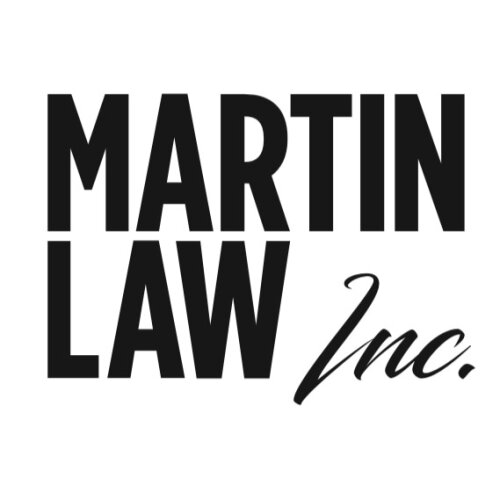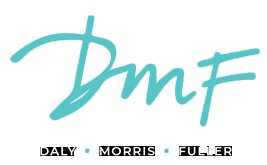Best Renewable & Alternative Energy Lawyers in Westville
Share your needs with us, get contacted by law firms.
Free. Takes 2 min.
List of the best lawyers in Westville, South Africa
About Renewable & Alternative Energy Law in Westville, South Africa
Renewable and alternative energy is an increasingly important field in Westville, South Africa, as the country shifts towards more sustainable and environmentally friendly power sources. Westville, located within the eThekwini Metropolitan Municipality in KwaZulu-Natal, is part of the larger national effort to diversify energy generation and reduce reliance on fossil fuels. Renewable energy encompasses sources like solar, wind, hydro, and biomass, while alternative energy includes methods that are not traditional fossil fuels. The legal landscape in Westville and South Africa broadly aims to regulate the development, implementation, and use of these energy sources, ensuring compliance with national targets, municipal planning, environmental protections, and international obligations.
Why You May Need a Lawyer
Dealing with renewable and alternative energy projects or installations in Westville can bring a variety of legal challenges. You may need a lawyer for the following reasons:
- Interpreting and complying with national, provincial, and municipal regulations
- Applying for permits for solar, wind, or other renewable installations on your property or business
- Negotiating power purchase agreements or feed-in tariffs with local authorities or utility companies
- Addressing land use and zoning issues related to energy projects
- Resolving disputes with neighbors, municipalities, or service providers related to energy generation or grid access
- Navigating environmental impact assessments and compliance
- Securing government incentives, tax benefits, or grants for renewable energy projects
- Protecting your intellectual property rights for new renewable energy technologies
Local Laws Overview
Westville residents and businesses must comply with a mix of national and local laws when engaging in renewable and alternative energy activities. Key legal frameworks include:
- National Energy Regulation: The Electricity Regulation Act and its amendments set out the core requirements for licensing, generation, and grid access. Certain smaller-scale installations may be exempt but must still follow technical and safety standards.
- Municipal By-Laws: The eThekwini Municipality, which governs Westville, has specific by-laws for solar panel installations, wind turbines, and alternative systems. These by-laws address building standards, planning permissions, and integration with municipal infrastructure.
- Environmental Legislation: Compliance with the National Environmental Management Act (NEMA) is essential. Large energy projects might require environmental impact assessments and ongoing reporting to local authorities.
- Building Codes and Safety Standards: The National Building Regulations and local policies determine what types of renewable energy systems can be installed and under what conditions.
- Government Incentives and Grants: There may be available national or local incentives to promote renewable adoption. Legal assistance is often needed to access these benefits.
Frequently Asked Questions
What qualifies as renewable or alternative energy in Westville?
Renewable and alternative energy includes sources such as solar, wind, small-scale hydro, and biomass. Alternative energy can also refer to technologies that are not strictly renewable but are cleaner than conventional fossil fuels.
Do I need a permit to install solar panels on my property?
Most residential and commercial solar panel installations in Westville require municipal approval and must comply with eThekwini Municipality by-laws and building codes.
Are there financial incentives for installing renewable energy systems?
National and municipal programs sometimes offer tax breaks or rebates to encourage renewable energy. These can change, so confirm with a legal or financial professional.
Can I sell excess electricity generated by my system?
Some programs, such as the local feed-in tariffs, allow small scale producers to sell excess electricity back to the grid. This requires specific agreements with the municipality or Eskom.
What are the environmental compliance requirements?
Larger projects may require environmental impact assessments and must comply with NEMA. Small home systems usually have simpler requirements but must still be compliant.
Does installing renewable energy affect my property taxes?
This depends on local municipal policies. In some cases, adding renewable energy systems could affect property valuations.
What legal issues can arise with neighbors over renewable energy systems?
Disputes can occur over property boundaries, aesthetic concerns, noise (from wind turbines), or shading. Consulting a lawyer before installation can help avoid conflicts.
Are there specific safety standards I must observe?
Yes. Installations must comply with the South African National Standards (SANS) and local safety guidelines to protect both users and utility workers.
Do I need a lawyer to draft or review power purchase agreements?
It is recommended, especially for commercial or large scale systems, to ensure your rights and responsibilities are clearly established.
How do I challenge a permit denial or municipal ruling?
Legal advice can help you appeal decisions made by the eThekwini Municipality or other bodies, ensuring your case is presented effectively.
Additional Resources
Consider consulting the following resources for more information and support regarding renewable and alternative energy law in Westville:
- eThekwini Municipality Energy Office
- Department of Mineral Resources and Energy (national level)
- National Energy Regulator of South Africa (NERSA)
- South African Renewable Energy Council (SAREC)
- National Cleaner Production Centre South Africa
- Local Environmental Law Clinics or Legal Aid Centres
Next Steps
If you need legal assistance in the field of renewable and alternative energy in Westville:
- Identify your objectives and gather all relevant documentation for your project or issue.
- Contact a legal practitioner with expertise in energy law, environmental law, or property law.
- Schedule an initial consultation to assess your needs and develop a compliance or dispute resolution strategy.
- Stay informed about regulatory changes and new incentives by regularly checking with trusted sources and authorities.
- Work collaboratively with your lawyer and local officials to ensure your project proceeds smoothly and within the law.
Lawzana helps you find the best lawyers and law firms in Westville through a curated and pre-screened list of qualified legal professionals. Our platform offers rankings and detailed profiles of attorneys and law firms, allowing you to compare based on practice areas, including Renewable & Alternative Energy, experience, and client feedback.
Each profile includes a description of the firm's areas of practice, client reviews, team members and partners, year of establishment, spoken languages, office locations, contact information, social media presence, and any published articles or resources. Most firms on our platform speak English and are experienced in both local and international legal matters.
Get a quote from top-rated law firms in Westville, South Africa — quickly, securely, and without unnecessary hassle.
Disclaimer:
The information provided on this page is for general informational purposes only and does not constitute legal advice. While we strive to ensure the accuracy and relevance of the content, legal information may change over time, and interpretations of the law can vary. You should always consult with a qualified legal professional for advice specific to your situation.
We disclaim all liability for actions taken or not taken based on the content of this page. If you believe any information is incorrect or outdated, please contact us, and we will review and update it where appropriate.











